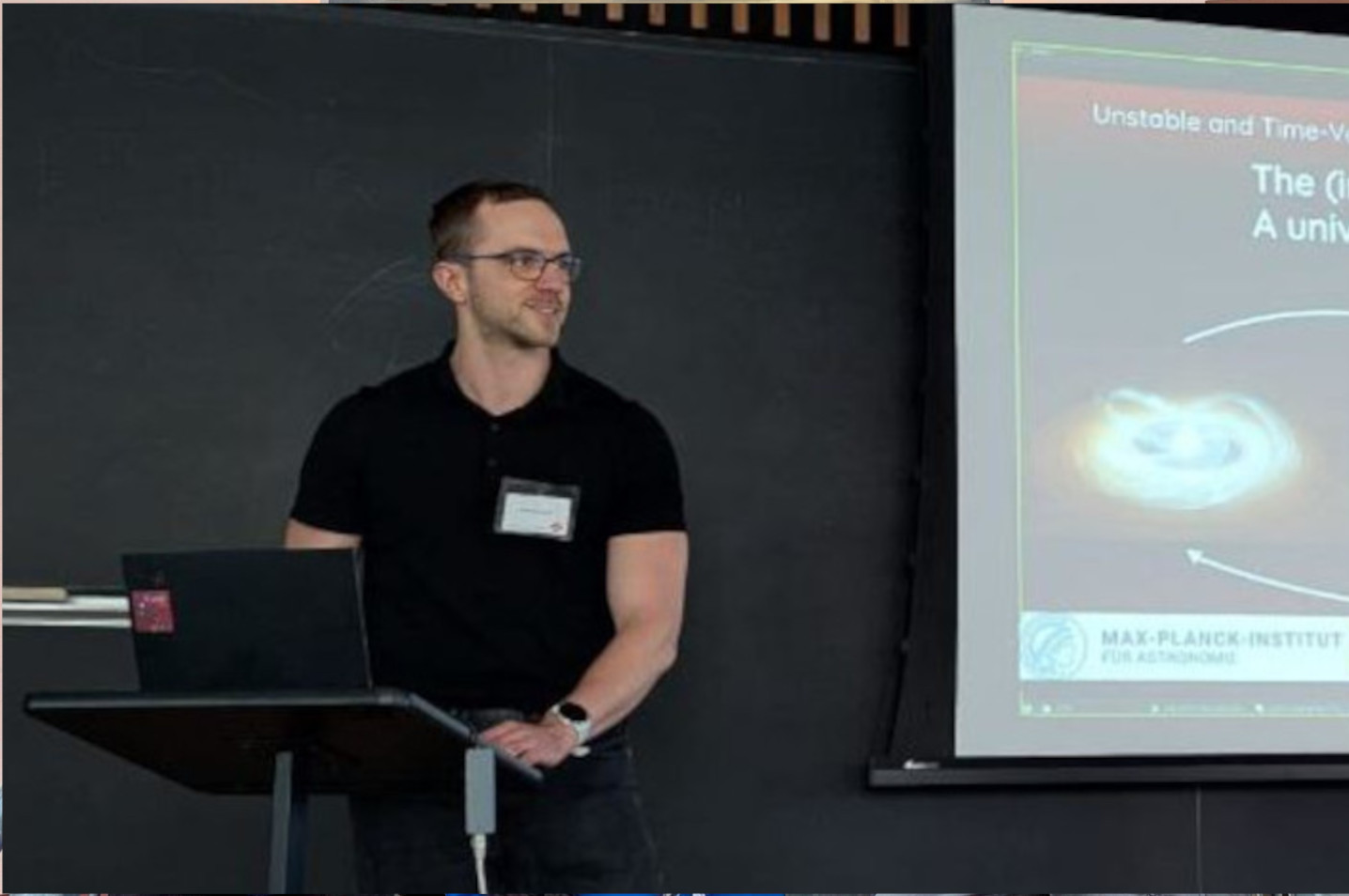


Welcome!
My name is Michael Cecil. I am currently a PhD student working with Dr. Mario Flock at the Max Planck Institute for Astronomy (MPIA) in the field of planet formation theory and modelling.
About MeFeatured Research
My research focuses on the structure and evolution of protoplanetary disks, multi-faceted and complex systems consisting of interstellar gas and dust, revolving around newborn stars. Ultimately, these disks are the cradles of planets such as our very own Earth and therefore represent an important puzzle piece in answering the age-old question:
Where do we come from?
(In)stability and evolution of the inner disk and its consequences for planetary formation conditions (PhD project)
The inner rim of protoplanetary disks is an elusive and complex, yet highly exciting component of the planetary cradle. Its closeness to the central star(s) presents challenges for both observations and long-term modeling. Irradiation by the star results in high temperatures and ionisation, giving rise to dust sublimation, turbulence, and instabilities, which are important contributors to the tale of the formation and migration of planets in the region where the majority of currently observed exoplanets and the terrestrial planets of our Solar System are located. The evolution of the inner disk can furthermore give crucial clues about the origin of commonly observed luminosity variability of young stellar objects by shaping the history of accretion of disk matter onto the central host star.
The first publication of this project, Cecil & Flock 2024, earned the Ernst Patzer Award in 2025 for one of the best refereed publications by a young researcher at MPIA or ZAH (Center for Astronomy of Heidelberg University).
This radiation-hydrodynamic simulation shows the dynamic behaviour of the inner rim of protoplanetary disks in terms of their temperature (upper left panel) and density structure (lower left panel). The inner disk region just beyond the dust sublimation front becomes unstable by the activation of the magneto-rotational instability (MRI) in the optically thick, dense material. The consequential runaway heating effect drives ionisation fronts, making the inner disk highly turbulent. This periodic phenomenon reshapes the density and pressure structure of the the inner disk and manifests itself as observable episodic outbursts of accretion onto the central star. The rate of accretion (right panel) can hereby change by multiple orders of magnitude. Download Video
The influence of photoevaporation on the evolution of protoplanetary disks
Protoplanetary disks typically survive for several million years before dispersing. Photoevaporation of disk material contributes significantly to this process and also affects disk structure, stellar spin evolution, and planetary composition. This project investigates the interplay between long-term disk evolution and photoevaporation in shaping planetary systems. In order to accurately capture the main physical processes contributing to this study, modeling of the protoplanetary disk from its inner rim to its outer edge over the course of several million years is required. This endeavor is enabled by employing the fully implicit hydrodynamics simulation code TAPIR.
Read More